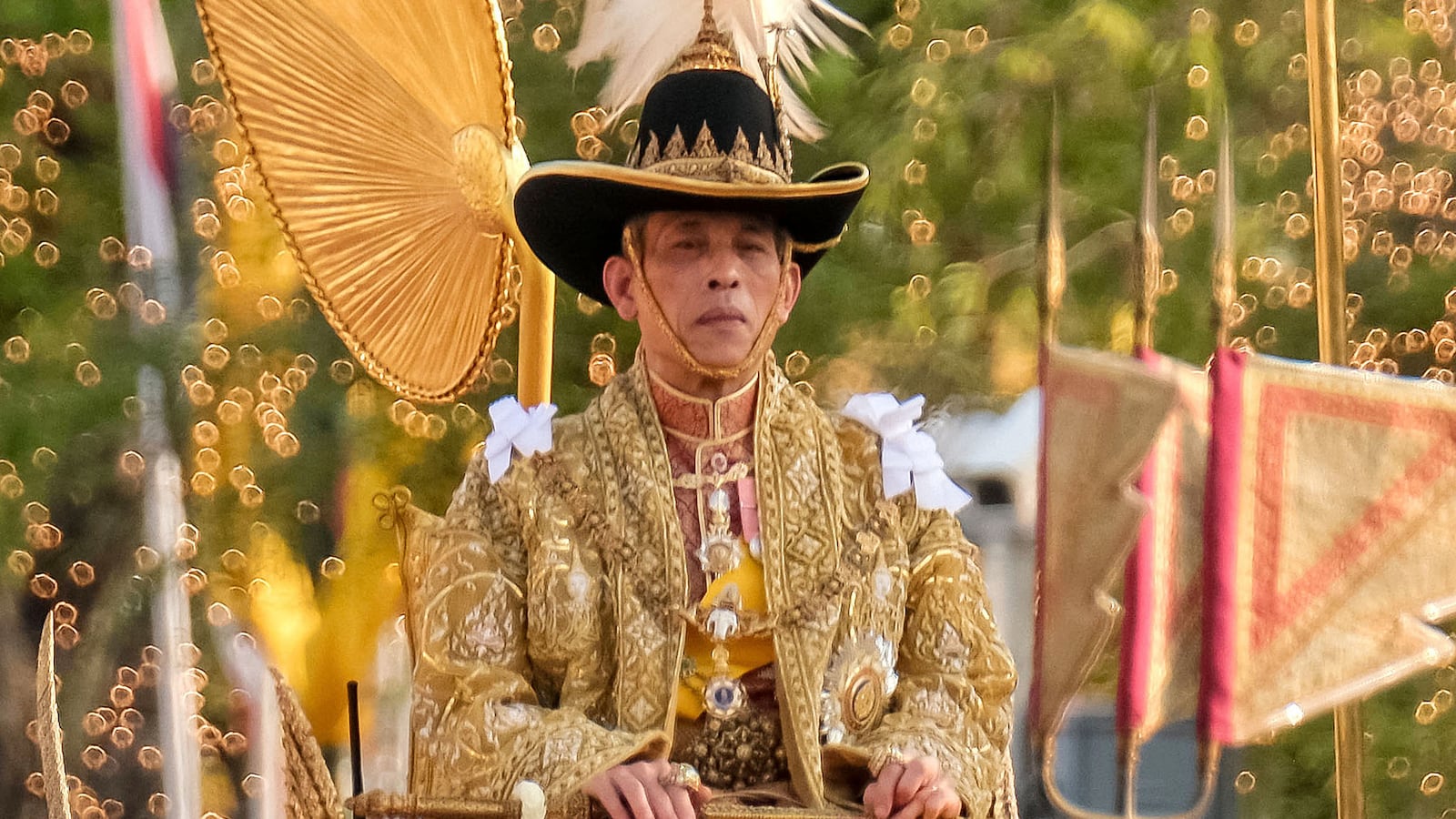The billionaire king of Thailand is running out of friends, at home and abroad.
King Maha Vajiralongkorn, who spends much of his time in Germany, in a hotel in the Bavarian Alps accompanied by a modern-day harem of up to 20 female consorts, has now been warned by Angela Merkel’s government not to conduct state business from German soil.
His residency there, which was revealed at the beginning of the coronavirus crisis when the hotel sought special permission to stay open, has become a flashpoint for unprecedented protests in Thailand against the repressive state and its semi-divine royal family.
The protests have been inflamed by reports of the king’s vast wealth, estimated by London’s Financial Times at between $30bn and $40bn, after sovereign funds were effectively put under his direct control by the leaders of a successful 2014 coup. He is believed to be the world’s richest king. Accounts of his gilded life at the Grand Hotel Sonnenbichl in Garmish-Partenkirchen, where his retinue of 20 concubines who have all been given the same honorary surname includes his fourth wife, are not helping either his domestic or international image.
Being one of the king’s girlfriends is not without risk, however, as illustrated by the fate of his “official” mistress, Sineenat Wongvajirapakdi, 35, who was named Chao Khun Phra, which means “royal noble consort,” shortly after he married his fourth wife, Queen Suthida.
In October 2019, it was announced that Sineenat had been stripped of the title in a palace statement that called her “ungrateful” for conducting a rivalry with Queen Suthida.
She is believed to have spent ten months in jail, but earlier this year she was restored to her former position, with a statement published in the government’s Royal Gazette saying Sineenat was “untainted” and therefore entitled to the royal noble consort title and all her previous posts within the palace.
As The Daily Beast recently reported, Vajiralongkorn is also alleged to have built up an extraordinary fleet of 38 jets and helicopters for the exclusive use of the Thai royal family.
Reports of his medieval privilege, not carried by local mainstream media due to strict prohibitions, now trickle back into the country via social media and Facebook. Thailand earlier this year sought to get Facebook to remove a group critical of the monarchy that had more than a million members, but failed in the attempt.
His overseas existence has led to him being dubbed “The German” by some protesters.
Although he flew back to Thailand on Saturday, and is expected to remain there to the end of the month, the king’s de facto residency in Bavaria has now also begun to raise eyebrows in Germany as well, with Merkel’s government explicitly saying last week that the Thai king should stop conducting state business while in Germany.
Maria Adebahr, spokeswoman for the German foreign ministry, said that the government had repeatedly stressed to Thailand’s ambassador to Berlin that “foreign affairs of state should not be pursued from German soil,” adding, “We have made our position very clear.”
The issue even made it into the German parliament. Frithjof Schmidt, an MP for the opposition Greens, asked why the German government had for months been allowing the king to engage in domestic politics from Bavaria. Heiko Maas, the foreign minister, replied: “We would always clearly counteract efforts by guests in our country to conduct affairs of state from our country.”
Schmidt, along with many Germans, is deeply uncomfortable that their country may effectively be providing a headquarters for a repressive regime: Schmidt cited the example of the king’s role in unilaterally preventing his elder sister, Princess Ubolratana Rajakanya, from running as a candidate in the March 24 election.
The move against the princess was widely seen as further evidence of a skewed race in which the prime minister, and leader of Thailand’s 2014 coup, General Prayut Chan-o-cha, had an unfair advantage, as 250 members of the Senate who help chose the PM were simply selected by the junta.
Strict laws preventing direct criticism of the monarch, his household, and even his pets are being openly and widely defied for the first time as part of ongoing student-led protests against the government.
“It’s the biggest issue of all in Thailand,” Parit “Penguin” Chiwarak, told the Financial Times. “The royal institution can interfere in politics because they have enough money.
“If we don’t say it now, when are we going to say it?”
Opponents of the commanding position and privilege of the Thai royal family have been emboldened in recent months as rallies by student protesters against the establishment have seen their numbers swelling. Thailand is battling a deep recession brought about by COVID-19 and the collapse of the pivotal tourist trade.






